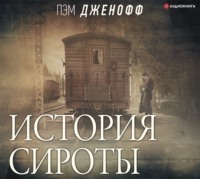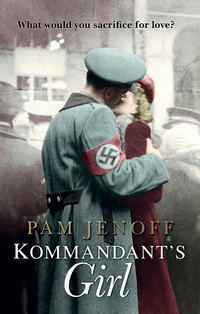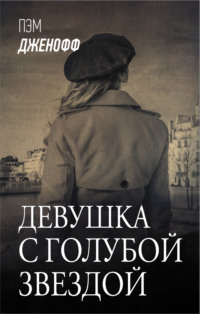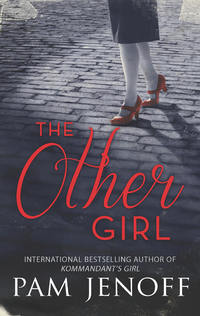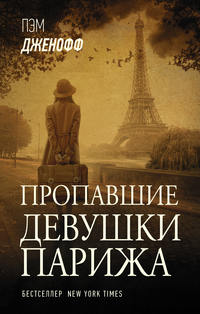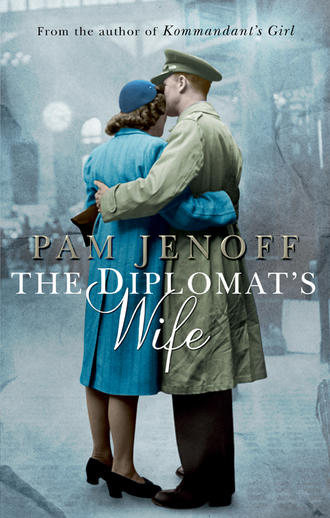
Полная версия
The Diplomat's Wife
“What is it?”
“Rose’s belongings, to give to her aunt.” Dava continues, “Plus some food for your trip.” She reaches into her pocket and pulls out some bills. “Money. Austrian, French, English, a bit of each. In case you need anything along the way.”
I hesitate. Something tells me that not all of the money was Rose’s, that it comes from Dava’s own meager wages. “Dava, I can’t take—”
Dava holds up her hand, cutting me off. “You are taking the money and I won’t hear another word about it.” She smiles. “Someday, when you are a wealthy Englishwoman, you can repay me.”
“I will,” I reply, overwhelmed by her kindness, by all that she has done for me. “With interest. Thank you, Dava.”
“Don’t worry about it. Just have a safe trip and be well. Write me once you reach London to let me know you’ve arrived safely.”
I start to thank Dava once more, but she takes my arm and leads me from the terrace. “Come on.” I steal one last look over my shoulder at the mountains, then follow her reluctantly around the side of the palace. A man whom I recognize as one of the maintenance workers sits in the front seat of a black car, engine running. “Johan will take you to the station,” Dava says. She grabs me by both shoulders, her familiar clover scent strong as she kisses me firmly on each cheek. “You are a strong woman, Marta. You have survived when no one thought you would, and you have a wonderful life ahead of you. Don’t ever look back.”
“I won’t,” I promise, a lump forming in my throat.
“Godspeed.” Dava turns and walks back inside the palace. I turn to thank her once more, but the door closes behind her.
I face the car, pausing nervously. I have only been in a few cars, quick furtive trips while working for the resistance. I climb into the passenger side and close the door behind me. Inside, the brown seats are worn and the air smells of stale cigarette smoke. Without speaking, Johan steps on the gas and the car lurches forward. I’m setting out on the same road Paul took just hours earlier, I realize as we pull from the driveway. I wish that he was with me. Or Rose, or Dava. Anyone. For the first time since prison, I am completely alone. Uneasiness rises inside me and I am seized by the sudden urge to ask Johan to turn the car around. I turn to look at the palace, but it has already disappeared, obscured by the thickness of the trees. Then I hear Dava’s voice in my head: Don’t look back. I can do this, I think. I have to. Steeling myself, I turn forward to face the road ahead once more.
CHAPTER 6
I gaze out the train window, blinking against the bright daylight that shines through a film of dirt and grime. Outside, rolling fields overgrown with late-summer brush and wildflowers stretch endlessly to the horizon. Last night, after we crossed the border into Switzerland, I was lulled to sleep by the gentle rocking of the train as we wound our way through the mountains. I was awakened roughly sometime in the middle of the night by a border guard demanding to inspect my papers at a second crossing. This morning, I opened my eyes to find the sun breaking over the gentle hills of eastern France, the rugged terrain long gone. From the position of the sun, I can tell that we are now heading north toward the coast.
I stretch, looking around the train car. Three seats, including mine, face another three a meter or so apart. The carriage is dilapidated, the seat cushions torn and stained. There was an older man seated across from me by the door when I boarded, but we did not speak and he is gone now. The air has grown warm and stuffy overnight and smells of sour milk. I reach up to open the window, which refuses to budge.
I peer out the train window once more. How much farther do we have to go? It must be about nine o’clock, judging by the position of the sun—at least another six hours until we reach Lille, according to the itinerary Dava gave me. My stomach rumbles. I didn’t eat at all yesterday, with everything that had happened with Paul and Rose and my leaving. I open my satchel, which sits on the seat beside me. Dava packed three sandwiches for me, one meat and two cheese. I unwrap one of the cheese sandwiches and take a bite. The bread is dry, but thick and familiar, a comforting reminder of the camp.
As I eat, I watch the fields roll by. A large, charred piece of metal the size of a horse wagon sits in the grass. It must have been a tank. I saw those in Kraków during the occupation. Little more than a year ago, these peaceful fields were battlegrounds. An image appears in my mind of soldiers, lying motionless on the ground. I think longingly of Paul. It is hard to believe it has been just a day since we said goodbye. The fighting is over in Europe now, but he said he would likely be shipped to the Pacific. I wonder where he is and, selfishly, if he has thought of me.
I eye the two remaining sandwiches. I am still hungry, but I don’t dare eat more now—we are still several hours from the coast, and I have no idea what food will be available at the port or on the boat, or how much it might cost.
Outside, a loud screeching noise jars me from my thoughts. We’re slowing down, and the landscape begins to pass more slowly. The braking sound grows louder as the train grinds to a halt. Pressing my head against the glass, I crane my neck, searching for a town or station ahead. But the fields are unbroken as far as I can see. Why are we stopping?
Five minutes pass, then ten. My uneasiness grows. Is something wrong? Have we broken down? Through the door of the carriage, I see the conductor pass by. Taking a deep breath, I stand up and walk to the door and open it. I hesitate. I speak almost no French. “Entschuldigen sie, bitte,” I say in German. Excuse me.
The conductor turns back, annoyed. “Ja?”
I hesitate. “Why have we stopped?”
“The tracks are broken ahead and we had no word of it when we were sent this way.” I struggle to understand his thickly accented German. “We’ll be backing up to the nearest junction shortly and heading for Paris.”
Panic rips through me. “But, sir, my ferry leaves from Calais at six tonight. I have to get there.”
“You’re not the only one with a boat to catch, miss,” he replies tersely. “There’s nothing to be done about it. You can take a train from Paris to Calais tomorrow. There will be other boats.” He turns and continues down the corridor.
I let the carriage door close and sink into the nearest seat. My visa expires tonight. I’ll never make it in time. A rock forms in the pit of my stomach. What am I going to do? I doubt the money that Dava gave me is enough for a return ticket to Salzburg. If I cannot get to England, I will be stranded with nowhere to go.
Desperately, I reach in my satchel and pull out the visa, scanning the document and trying to understand the foreign words. My eyes go to the seal at the top of the page. There must be a British embassy in Paris. Perhaps if I go there and explain, I can get an extension. I hesitate, considering the idea. Do I really dare walk into the embassy with a visa that isn’t even really mine? It is my only hope. Still clutching the papers, I lean back and pray for a miracle as the train begins to roll slowly backward.
I stand by the door, satchel in hand, as the train pulls into Gare l’Est. I open the door and leap to the platform as we slow, not waiting to come to a complete stop. It has been more than seven hours since we stopped in the countryside and began our slow, painstaking detour to Paris. As the train crawled through the seemingly endless countryside, I fought the urge to scream. Instead I hounded the harried conductor for directions to the British embassy, practiced over and over again what I would say when I arrived.
I race down the platform, then pause, staring helplessly at the unintelligible French signs. The massive train station is awash with travelers—commuters mingle with groups of soldiers and families seeming to carry all of their possessions in large bags. To the right, I see a sign with a large M on it. The conductor told me the quickest route to the embassy was to take the Métro to the Madeline station.
Weaving my way through the crowds, I run to the entrance of the Métro, then hesitate, staring down the steps into the black hole. The smell of urine wafts upward. Can this possibly be right? Though I have read about subways, I have never actually taken one. But the conductor said it was too far to walk and he did not give me directions by bus. And it is four-twenty, just forty minutes until the embassy will likely close. I take the stairs two at a time, holding the railing so as not to fall. At the bottom, I pause to consult a map and identify a pink line that runs between the Gare l’Est and Madeline stations. Quickly, I buy a ticket from the kiosk, then follow the signs for the pink line to a crowded platform. A few minutes later, a train rumbles noisily into view. I board with the other passengers and find myself pressed uncomfortably into the center of the car between an old man and a group of schoolgirls. There is nowhere to sit, so I reach out and hold on to a nearby pole for balance.
The doors close and the train begins to roll forward. A voice comes over the speaker, announcing the next stop in garbled French that I cannot comprehend. How will I know where to get off? My eyes dart to the route map over the door and I count four stops between Gare l’Est and Madeline. Faster, I think, digging my nails into my palms. What if I don’t make it on time? We reach the first stop and the doors open. A few passengers get off, but others board, making the train car more overcrowded than before. Just three more stops, I think, as the train begins to roll forward into the darkness of the tunnel. Suddenly, it halts again. The other passengers groan collectively, mumbling phrases I cannot understand. Why have we stopped? I catch a glimpse of a man’s wristwatch. Four-thirty-five. I am not going to make it. A cold sweat breaks out beneath my dress.
The train starts to move again. We reach the second stop, then the third. As we leave the fourth stop, I inch my way through the crowd, trying to get closer to the door. The train creeps into Madeline station. As the doors open, I push through the crowd and race up the steps. At the top, I step onto the pavement and stop, gasping. I am standing at the biggest intersection I have ever seen. Buses, taxis and other cars, at least four deep, race in all directions along two wide boulevards, flanked by enormous buildings. The cities I have seen before, Kraków and Salzburg, in no way prepared me for this. I shiver, overwhelmed by the sheer magnitude of it all.
But there is no time to wonder. A bell chimes once, jarring me from my thoughts. Four-forty-five, the clock on the front of a large stone church across the boulevard reads. The embassy will close in fifteen minutes. I look in both directions, trying to get my bearings. Rue Royale, the street sign at the corner says. I turn left, as the conductor instructed, and run to the next major intersection. In the distance across the boulevard, I see a massive gray building, flags flying atop. That must be the embassy! I step out into the street, then jump as car horns blare out noisily in protest. The traffic light is red, I realize, leaping back onto the curb. When the light turns green, I fly across the intersection and down the street. The distance between myself and the embassy closes, fifty meters, then twenty. At last I reach the front of the large columned building bearing a British flag on the roof.
I rush to the guard booth at the front gate of the embassy. “Visa section, please,” I pant in English, still breathing heavily from the run.
“The consulate is closed, ma’am.”
My heart sinks. “But it’s not yet five …”
He shakes his head. “They stop taking applicants at four-thirty.”
“Please,” I plead, pulling my visa from the bag and holding it out to him. “It’s very urgent that I see someone today.”
He does not look down at the papers. “You’ll have to come back tomorrow.”
“But tomorrow will be too late.”
“I’m sorry. There’s nothing I can do.”
I step backward, feeling as though a rock has slammed into my chest. I am too late. The embassy is closed. Shoving the papers back into my bag, I stumble away from the gate. The boulevard is crowded now with men in suits on their way home from work, small clusters of young colleagues going for drinks. People living their normal lives. People who belong here. My eyes begin to sting. I brush my hand across them impatiently. Crying isn’t going to help. I have to figure out what to do.
Across the street from the embassy, I notice a small park. I cross the street and make my way down one of the tree-lined paths. Slats of sunlight shine through the leaves. The benches along either side of the path are filled with Parisians enjoying the summer evening. A woman knits silently on one of the benches, a large shepherd at her feet. Farther along, two old men play chess, surrounded by a small group of onlookers. There are people sprawled in the grass as well, smoking cigarettes and reading.
I walk toward the fountain that sits in the middle of the park, finding an empty spot on one of the peeling green benches that surround it. On the other end of the bench a man reads Le Monde, the newspaper spread wide in his lap. He does not look up as I sit.
On a bench across from me, I notice two young women with prams in front of them. They are speaking in a Slavic language, and though I do not recognize which, I understand enough to gather that one is describing a night out with a man, perhaps a boyfriend. They rock the carriages with a disinterest that suggests the babies inside are not theirs.
A cool wind blows through the park. Looking up at the dark clouds that have eclipsed the sun, I cross my arms, wishing I had a coat. It will be evening soon. I need to think about where I will stay tonight, and about food. I pull the last of Dava’s sandwiches from my bag and unwrap it. I sniff the sandwich, remembering from prison how to judge how far bad it has gone, whether or not it is safe. The meat has a slightly sour smell, still edible but not for much longer. Breathing shallowly, I take a bite. I cannot afford to waste any food now. As I eat, I think longingly of the hot dinners prepared by the Red Cross in the palace kitchen. The Red Cross! Perhaps they help refugees here, too. I hesitate, looking at the au pairs, then stand and make my way across the path. “Przepraszam,” I say, excusing myself in Polish. Hopefully their language is close enough so that they will understand. The women stop speaking and look up at me, squinting. I touch my chest. “Refugee.” Then I point at them. “You, too?”
The women start to stand up, their expressions turning to fear. “Non,” the younger-looking woman, hair dyed an unnatural red, says quickly in French.
She’s lying, I think; their papers must not be in order, either. “Can you tell me how to find the Red Cross?”
They weigh the question, considering whether to help. “Americans,” the older woman says in a low voice, pointing in the direction of the embassy.
She must be confusing the British embassy for the United States. “I’ve already been to the British embassy and they wouldn’t—”
The woman cuts me off. “American,” she insists. I look again in the direction in which she is pointing. The flag on the British embassy has been taken down for the day. But on another building behind it, an American flag flies. She is trying to tell me, I think, that the American embassy can direct me to the Red Cross. But it is after five now; that embassy will surely be closed, too. I turn back to ask again for directions to the Red Cross, but the girls have looked away, disinterested, and resumed talking in their own language.
I start back toward the bench, but my spot is now occupied by a lady with a poodle. There is nowhere for me to go. Even the bench is taken. Suddenly, tears well up in my eyes once more. This time I let them overflow, run hot and salty down my cheeks, not caring who sees. As if on cue, it begins to rain, thick heavy drops dotting the water in the base of the fountain, splashing against the pavement. Feeling the drops soak through my clothes, I think of the storm that began as Paul and I sat in the rowboat on the lake. Was that really only two nights ago? It feels like another lifetime. But there is no gardener’s shed here, a voice reminds me. No Paul to row you to shelter. The voice, long forgotten, is strong and firm, the one that sustained me through prison.
I need to find shelter. I take off my glasses and wipe the water from the lenses. Then, replacing them, I look across the park. At the far end, on the opposite side of the street, sits a massive stone church. I walk closer. Looking up at its turrets climbing toward the sky, I am reminded of the Mariacki Cathedral in Kraków. The first time I saw it, crossing the market square on an errand for the resistance with Jacob, I was staggered by its size. I was even more surprised when Jacob told me that we were to meet our contact inside. As a Jew, churches had always been forbidden; even the tiny one-room church in our village, not much bigger than the synagogue, had seemed ominous. But to the resistance, the churches were safe havens, a place to go under the pretext of prayer, exchanging information with contacts in hushed tones in the back pews.
A safe haven, I think now, staring at the open door of the church. No one will bother me there. I make my way up the stone steps. Inside, the church is cool and dark, empty except for an older woman lighting a candle in an alcove to the right. I slip into one of the back pews, keeping my head low. The wood has an earthy, human smell that makes me think I am not the first to use it as a shelter. I look up. From the rafters, stone statues of saints stare down at me piously. What am I going to do? I ask silently. They look back mutely, their pity useless. Behind me, I hear voices. Two women remove kerchiefs from their heads as they make their way up the aisle, clutching rosaries. I wonder if they are regular parishioners, if they will know that I do not belong. But they do not seem to notice me. When they have passed, I sink back in the pew, suddenly exhausted. My entire body seems to ache.
I will go back to the British embassy tomorrow, beg to have the visa extended, I decide as I watch the women make their way to the front of the church and kneel. And if they refuse? a voice inside me—not the strong one—asks. I push the question down. I must get the visa extended. There is no other option. I wonder if the church is open all night, if I can perhaps stay here until morning. More parishioners enter the church, slipping into pews, spending a few minutes praying alone or in pairs before leaving again. I had always imagined Parisians to be elegant and fashionable. But the people I see are simply dressed, their faces careworn, reminding me that just a short while ago, Paris was occupied, too.
Outside, the church bells ring eight times. As if on cue, a man appears at the front of the church with a broom and begins to sweep. The church will close soon, I realize, as the last parishioners shuffle toward the door. I cannot stay here. I walk outside to the front steps, then hesitate. Where can I go? The rain still falls in heavy sheets, forming a large puddle at the base of the stairs. I look back at the front of the church. Stone columns stand to either side of the entranceway. I make my way toward the one on the right. There, where the column meets the building, is a shallow nook, a meter wide and half as deep. No one can see me here, I think, stepping into the space. I sink to the cold, hard floor, grateful for a place to stay out of the rain. A damp scent rises from the stone.
Wrapping my arms around my knees, I look out into the street at the cold, unfamiliar city. How did I get here? Suddenly I recall once being in the woods outside Lodz. Jacob had left me hidden in a cluster of trees while he went to find our contact. Later I would learn that he had become lost on his way back to me. But in that moment, as I huddled in the pitch darkness, strange, unseen noises coming from the woods around me, I was terrified. What if he never came back for me? Remembering now, a chill runs down my spine. Until that moment, I had not understood what it meant to be completely alone. It was a thought that would later haunt my long, lonely days in prison. I had not thought of it since being liberated, but alone now, I am caught by the memory once more.
My thoughts are interrupted by footsteps. The man who had been sweeping stands in the doorway of the church, still holding his broom, looking at me. We stare at each other for several seconds. Without speaking, he disappears back inside the church. My heart pounds inside my chest. Is he going to make me leave, even call the police? A second later, the man reappears in the doorway and starts toward me, carrying something. A blanket, I see, as he sets it by my feet. “Merci,” I say, but he turns and walks back inside the church without speaking, closing the door behind him.
I stare after him for several seconds, caught off guard by his simple act of kindness. Then I reach down and unfold the wool blanket, pulling it up around me. The blanket smells of dirt and cigarettes. I wonder if it is his own, if he has shared it with others who have stayed here. I lean back, the scratchy fabric comforting against my arms. Not so completely alone after all. I look beyond the edge of the cathedral at the rain-soaked street, then up at the dark, cloudy sky, wondering what tomorrow will bring.
CHAPTER 7
I refold the blanket, looking toward the front door of the church. I would like to hand it back to the janitor and thank him, but the door is closed, the man nowhere to be found. Instead, I set the blanket neatly in the corner where I spent the night, then make my way down the steps.
It is morning now and the sun shines brightly, drying the last of the dampness from the pavement. The park is nearly empty, except for one disheveled old man I think I recognize from the previous evening, curled up on one of the benches under a damp coat. Did he spend the night there? I am more grateful than ever for the shelter of the church roof and blanket.
On the other side of the park, I pause, looking up at the Union Jack that flies high above the British embassy. My breath catches as I imagine walking up those steps and through the door, convincing whoever waits on the other side to extend the visa. It has to work. I cross the street and walk to the entrance, where a different guard from the previous evening occupies the booth. I take a deep breath. “I—I’m here about a visa,” I manage to say in English.
He points to the left. “Entrance is around the corner.”
“Thank you.” I walk to the end of the block. As I turn the corner, my heart sinks. There is a line of people starting at the corner and running all the way down the street. I walk to the man who stands at the end of the line, then hesitate. The few French words I know seem of little use. “Visa?” I ask hopefully, pointing at the door. Perhaps all of these people are waiting for something else. He shrugs, turns away. I walk quickly back around the corner to the guard booth. “Excuse me, I know you said that the entrance for visas is around the corner. But all of those people …?”
“Are waiting for visas, too. Take a number.”
I cock my head, puzzled. I did not see any numbers. “I already have a visa,” I say, trying again. “I need an extension.”
“Same line,” the guard replies, pointing once more.
I turn and start back around the corner, my shoulders slumped in disappointment. The line has grown even longer in the minute I was away, two more people joining the queue. I file in behind them quickly. There must be at least a hundred people ahead of me, men and women of every size and age. Some carry babies or hold small children by the hand. If only I had known, I could have waited here all night instead of sleeping by the church.
In the distance a clock chimes nine. Slowly the line begins to shuffle forward. Perhaps this will not be so bad, after all. But then the line comes to a complete stop. Thirty minutes pass, then an hour. I turn and look behind me. At least another twenty people have joined the queue, giving the appearance that it has not shortened at all. We stand motionless for what seems like an eternity, shuffling forward a few meters every half an hour or so. The clock chimes eleven and the sun grows higher in the morning sky, making the air warm and humid.


